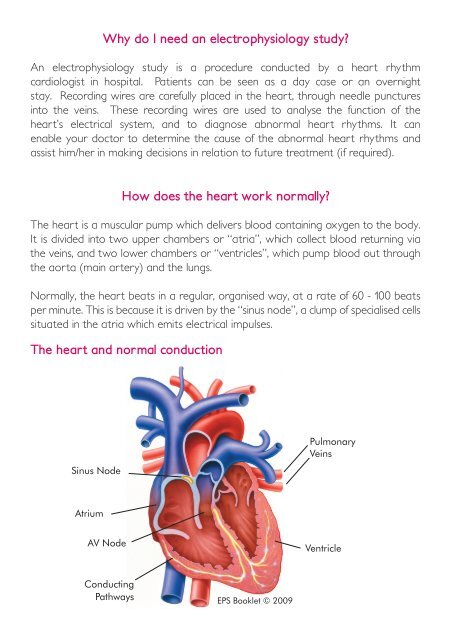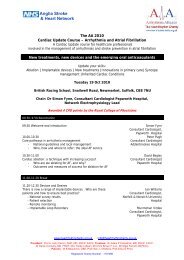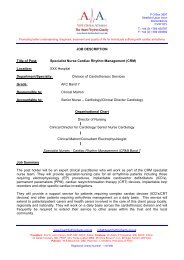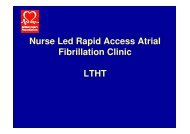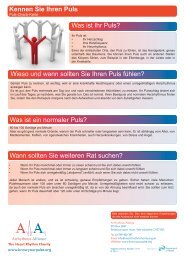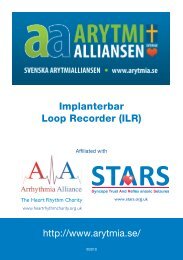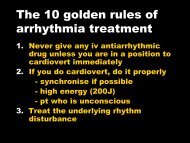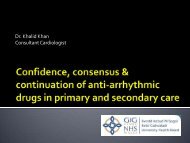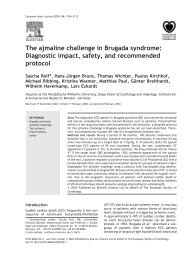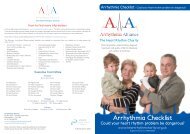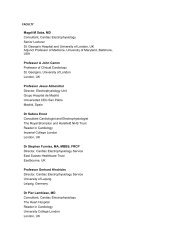Electrophysiology Studies (EPS) - Arrhythmia Alliance
Electrophysiology Studies (EPS) - Arrhythmia Alliance
Electrophysiology Studies (EPS) - Arrhythmia Alliance
Create successful ePaper yourself
Turn your PDF publications into a flip-book with our unique Google optimized e-Paper software.
Why do I need an electrophysiology study<br />
An electrophysiology study is a procedure conducted by a heart rhythm<br />
cardiologist in hospital. Patients can be seen as a day case or an overnight<br />
stay. Recording wires are carefully placed in the heart, through needle punctures<br />
into the veins. These recording wires are used to analyse the function of the<br />
heart’s electrical system, and to diagnose abnormal heart rhythms. It can<br />
enable your doctor to determine the cause of the abnormal heart rhythms and<br />
assist him/her in making decisions in relation to future treatment (if required).<br />
How does the heart work normally<br />
The heart is a muscular pump which delivers blood containing oxygen to the body.<br />
It is divided into two upper chambers or “atria”, which collect blood returning via<br />
the veins, and two lower chambers or “ventricles”, which pump blood out through<br />
the aorta (main artery) and the lungs.<br />
Normally, the heart beats in a regular, organised way, at a rate of 60 - 100 beats<br />
per minute. This is because it is driven by the “sinus node”, a clump of specialised cells<br />
situated in the atria which emits electrical impulses.<br />
The heart and normal conduction<br />
Sinus Node<br />
Pulmonary<br />
Veins<br />
Atrium<br />
AV Node<br />
Ventricle<br />
Conducting<br />
Pathways <strong>EPS</strong> Booklet © 2009


